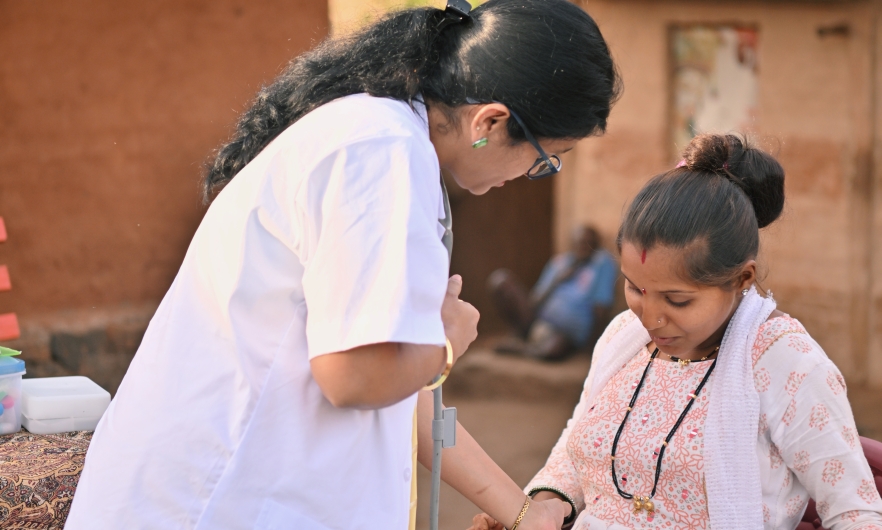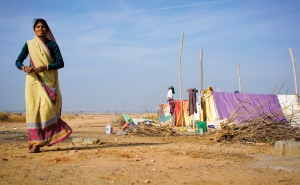Johns Hopkins Expands WHO Training Course on Noncommunicable Diseases

Researchers at the Johns Hopkins Bloomberg School of Public Health received a grant from the WHO to expand an existing course on noncommunicable diseases to include service integration with maternal and mental health. The aim of the course is to inform context-specific solutions and build national capacities in low- and middle-income countries to address NCDs through multisectoral action and service integration with other global health issues. This practical course will be freely accessible to everyone on a user-friendly web platform.
Jennifer Applegate, PhD ’20, MSPH ’12, assistant research professor in the Department of International Health at the Bloomberg School, will lead the expansion of the course. The original pilot enables participants to build leadership and critical thinking skills and provides the tools and competencies needed to work across sectors and stakeholders in challenging public health settings, while the expansion of the course focuses on service integration with other global health issues. The expansion will occur in four phases: evaluation of the existing pilot course, development of additional modules on integrated NCD prevention and control, finalization of the full course, and administration and evaluation of the full course.
NCDs, such as cardiovascular diseases, cancers, chronic respiratory diseases, and diabetes, are a major public health problem, with a disproportionate portion of global deaths occurring in LMICs. Key risk factors for NCDs include tobacco and alcohol use, unhealthy diets, and a lack of physical activity. The course emphasizes taking a multisectoral approach that brings together different industries that can address these risk factors—such as the transportation, urban design, and finance industries—for the prevention and control of NCDs. For example, experts in the urban design and transportation sectors can help with the design of safe and convenient access to public spaces that promote physical activity, such as walking and cycling.
NCDs also have linkages with other global health issues, such as maternal, newborn, and child health, and mental health. For example, diabetes in pregnancy is increasing globally and can lead to an elevated risk of negative birth outcomes, while mental health conditions, such as depression and anxiety, can lead to increased NCD risk factor behavior.
The additional modules of the course will emphasize service integration with other global health issues, including addressing the challenges in providing integrated service delivery—such as lack of availability of NCD screening tools, treatment guidelines, and capacity, and limited access to essential medicines and equipment needed to diagnose NCDs—as well as improving the quality of care for NCDs and addressing the factors that contribute to low-quality care. The course aims to reach those in program and policy development and implementation in LMICs who are working on NCD and mental health service integration, and is expected to launch in Spring 2025.
Other Johns Hopkins faculty contributing to the development of the course include Sara Bennett, PhD, professor, Ligia Paina, PhD ’14, MHS ’08, assistant professor, and Victoria Chou PhD ’11, MS, associate scientist, in the Department of International Health. Connie Hoe, PhD ’15, division head for policy and implementation research at DKFZ German Cancer Research Center, led the development of the original course on NCDs while she was a faculty member at the Bloomberg School with support from Lauren Bisi, a PhD student in the Department of International Health, and will serve in an advisory capacity for the expansion.





